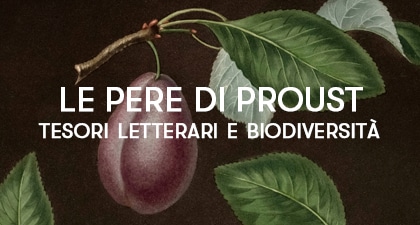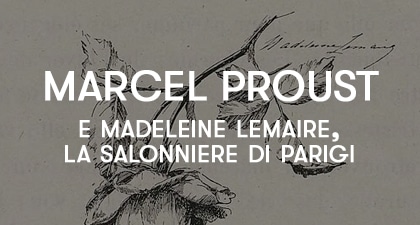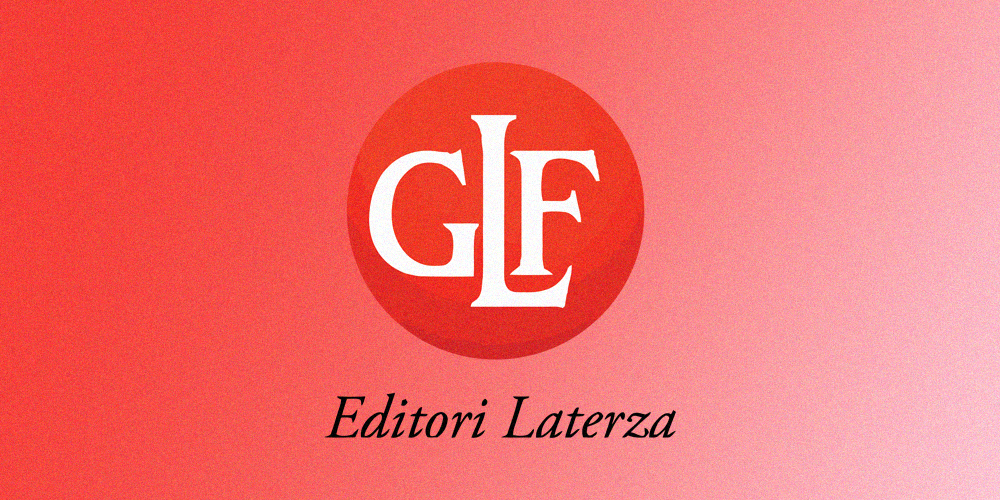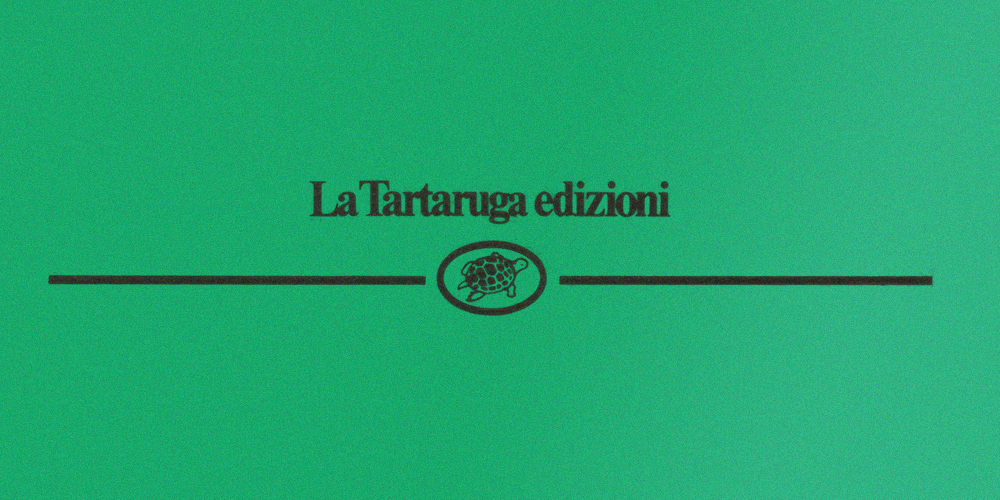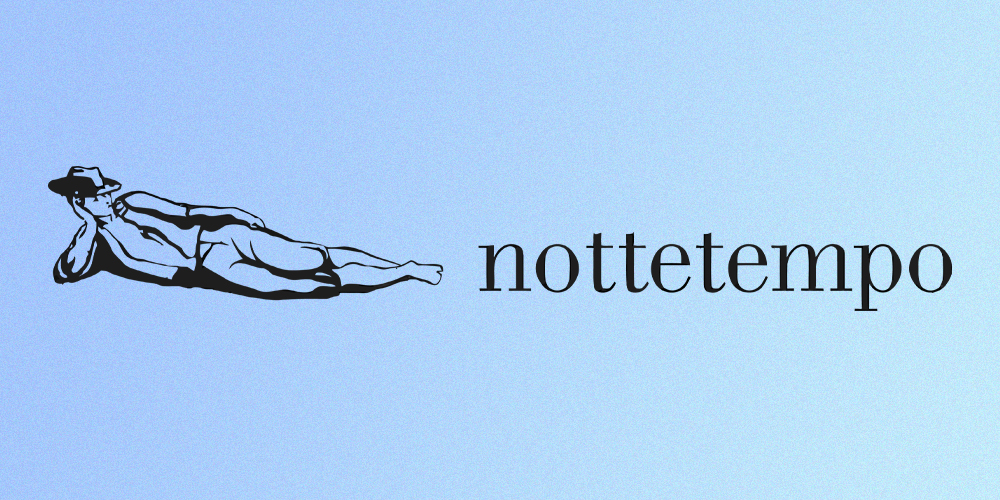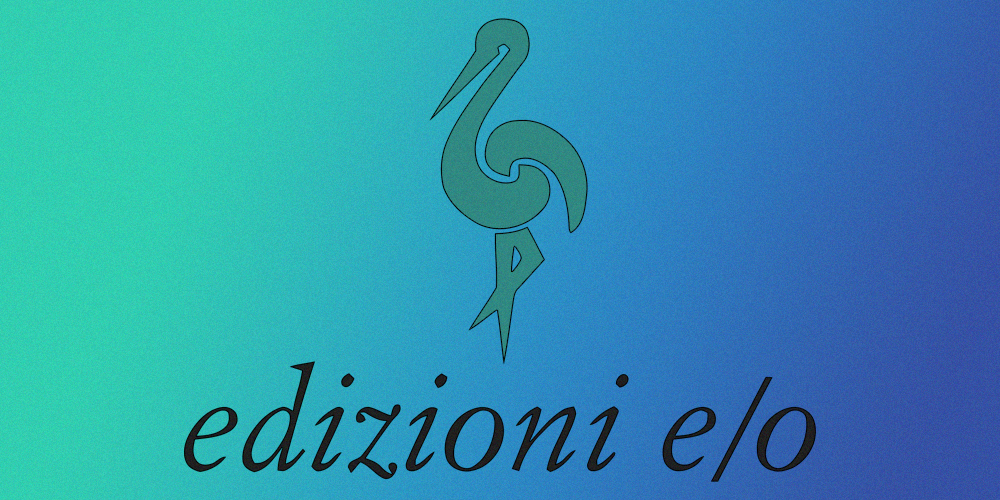
Edizioni E/O is the sixth publishing house in our journey through Italian publishing
The publishing house has always been an expression of the desire to create bridges and breaches in literary borders to stimulate dialogue between cultures. This started with the name “e/o,” which stands for “and/or” but also “east/west,” and the logo with the stork, the migratory bird that would travel the world bringing stories for the decades to come.
Edizioni E/O was founded in Rome in 1979 – 41 years ago – by Sandro Ferri and Sandra Ozzola, who would later marry. Ferri had been involved in Lotta Continua and worked at Vecchia talpa, a bookstore frequented by the Roman left; Ozzola was born in Turin and had a degree in Russian literature. Their initial idea was to publish fiction by writers from the socialist countries of Eastern Europe, whose works could not be read in their own countries, let alone in the West.

In its early days, E/O was a small family-run business.
The family quickly expanded with the collaboration and friendship of extraordinary professionals and intellectuals such as Grazia Cherchi, Goffredo Fofi, Domenico Starnone, and Anita Raja.
A trace of that initial idea still survives in the books of Svetlana Aleksievič, the Belarusian writer who won the Nobel Prize for Literature in 2015, whose War’s Unwomanly Face and Prayer for Chernobyl are published by E/O. However, the first book published by E/O was Explosion of an Empire? by Hélène Carrère d’Encausse.
One of the first writers they sought was Milan Kundera.
They wrote him a letter in 1981, and he replied by asking them to visit him in Paris. They discussed assigning him a Prague-based series, but then Kundera – to their great disappointment – decided to give the rights to The Unbearable Lightness of Being to Adelphi.

Other Eastern writers translated into Italy by E/O included Julian Stryjkowski, Kazimierz Brandys, Christoph Hein, but especially Christa Wolf, whose books published by E/O have sold a total of 500,000 copies over the years. Then there’s Bohumil Hrabal, whom Ferri and Ozzola would visit in the two Prague beer halls where he would receive them surrounded by followers, aspiring writers, and semi- or fully clandestine publishers. Finally, there’s Jana Ćerná, the daughter of Kafka’s Milena, whose poetry book was published by E/O in 1991, with a title that stayed in one’s mind.
In the 1990s, the E of East was replaced more by the O of West. Ferri and Ozzola focused on American literature, bringing to Italy some of the writers who would shape the American literature of the late 20th century.
Joyce Carol Oates, Alice Munro – Nobel laureate in 2013 – and Thomas Pynchon, whose A Slow Apprenticeship was published in 1984 and Entropy and Other Stories in 1992. All of them would soon move to larger publishers, particularly Einaudi and Rizzoli, which often happens with authors who increase their fame and bargaining power.

From a sales perspective, E/O’s success came in the mid-1990s with the eight novels of Massimo Carlotto’s The Alligator, highlighted by the famous critic Grazia Cherchi at the time, which together sold 800,000 copies; and with the Marseille Trilogy by Jean-Claude Izzo, which E/O began publishing in 1998.
Alongside the so-called Mediterranean noir, the publishing house continued to cultivate another fundamental thread in its history: female authors.
In 1994, Una bambina e basta by Lia Levi was released. At the beginning of the 2000s, a huge success: The Lovely Bones by Alice Sebold. In 2007, the French novel The Elegance of the Hedgehog by Muriel Barbery was published, which became a bestseller, especially thanks to word of mouth.

But in 1992, E/O also published Amore molesto, a novel by an author nobody knew: Elena Ferrante.
Director Mario Martone made a widely discussed and appreciated film from it, which increased its notoriety.
But almost twenty years later, with the enormous success of the subsequent books, the author – Elena Ferrante was a pseudonym – is still unknown, even though many rumors circulate about her identity, particularly that she could be the writer Domenico Starnone, his wife Anita Raja, the critic Goffredo Fofi, or even Ferri and Ozzola themselves.
After nearly ten years of silence, The Days of Abandonment came out in 2002, followed by The Frantumaglia in 2003, and The Lost Daughter in 2006.
Another five years of silence, and then in 2011 E/O published My Brilliant Friend, the first book of the Neapolitan quartet, followed by Story of a New Name, Story of Those Who Flee and Those Who Stay, and Story of the Lost Child, one per year between 2012 and 2014. Then in 2019, The Lying Life of Adults was released.
Meanwhile, E/O had many authors and books selling in its catalog, and it could have been content.
Instead, in 2005, Ozzola and Ferri did something no one had ever done before: they decided to open a publishing house in New York – Europa Editions – to publish in English and distribute their own books.

Along with the quality of the books and the rarity of translations, some of the most important factors in Europa Editions’ success in the U.S. for Ferri include distribution, reviews, a certain Italian appeal, and, above all, independent bookstores.
While large publishers tend to repeat and standardize formulas that have worked, the successes of independent publishers – like E/O, Adelphi, or Sellerio – are often characterized by being unexpected and completely different from each other.
In the case of E/O, perhaps, there is one constant: a strong territorial and geographical grounding. The stories and characters in E/O’s books cannot be separated from the places where they live and act.
These are stories that cannot be imagined set elsewhere: the rape in The Lovely Bones could only have happened in an American town, Fabio Montale from Izzo can only move around Marseille, and the same goes for Carlotto’s settings, the concierge in The Elegance of the Hedgehog can only be in Paris, and the brilliant friends could only be from Naples.
This attention to and strong local rooting could be a theme through which Ferri and Ozzola see themselves as global publishers, not confined within the borders of a country or a language.
Check out all the books published by Edizioni E/O available in our catalog.
Would you like to discover more stories about Italian publishing houses?
Here you can find all our articles.


